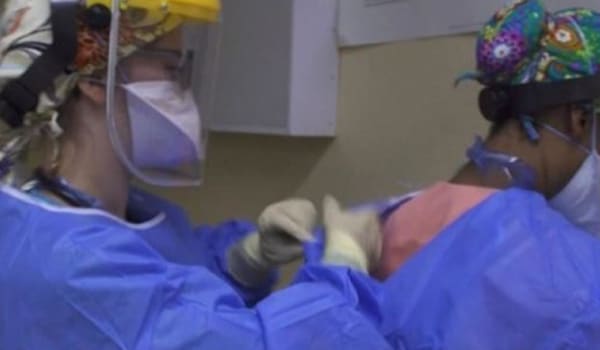
by Richard Nellums, Laurie B Armitage
EClinical Medicine, 23 June 2020
It has been rightly noted that health workers globally must be able to speak out during Covid-19, allowing them to draw public attention to inadequate personal protection equipment (PPE) supplies and unsafe working conditions, while being protected from censorship, attack, government intimidation, harassment, and arrest. But such systemic failure to provide health workers with the resources they need represents only one of numerous situations in which clinicians may consider raising the alarm. Health service whistleblowing procedures that are secure and robust are of paramount importance to patient safety, and must be strengthened and protected during Covid-19.
Whistleblowing – raising concern about professional wrongdoing – is an essential component of patient safety and care. In addition to the provision of inadequate training, education, and necessary resources, crucial reasons for whistleblowing include poor patient outcomes, anticipation and reporting of catastrophic events, suspicion of fraud, a bullying culture towards patients or colleagues, and research misconduct. Historically, whistleblowers have faced intimidating environments in which their concerns are ignored, perpetuating a culture of fear. In response, many regulatory bodies now facilitate anonymous reporting, and protect informants from victimisation, harassment, and dismissal.
The degree to which Covid-19 has necessitated the rapid redesign and redeployment of health systems, services, staff, and research globally has created clinical environments in which patient safety, care, and dignity could be threatened. This may be unintentional, and devoid of malicious intent, as the vast majority of health workers and researchers maintain high professional standards. However, such unprecedented conditions may foster the development of harmful malpractices, which may be driven by insufficient resources, supervision, training, or clinical experience. For example, as part of the response, medical students are providing clinical care, retired clinicians returning to work, and staff redeploying to novel clinical settings, alongside significant burdens of staff absenteeism, and increased patient demand for acute and emergency care. Furthermore, ethical review procedures are being expedited, alongside compassionate and off-label drug use, the administration of unproven therapies, uncontrolled studies, and altered consent requirements, raising concerns around patient safety. Without timely, secure, and effective whistleblowing procedures, these conditions may lead to unsafe working environments, poor clinical care, and significant harm to both patients and staff.
There exists an urgent need to preserve and strengthen existing whistleblowing channels during Covid-19. This should occur at patient, provider, service, and policy levels, such as patient awareness raising, and increasing health worker familiarity with organisational whistleblowing procedures. Authority figures should empower and encourage health workers to raise concerns, and provide regular opportunities through anonymised online surveys, while regulatory and medico-legal bodies reaffirm their pledge to protect all whistleblowers. Such measures are essential to protect the human rights of these irreplaceable health workers, and to safeguard patient safety, clinical care, and human dignity.
PHOTO: South Africa, in Eye on Africa, France 24, 22 April 2020



